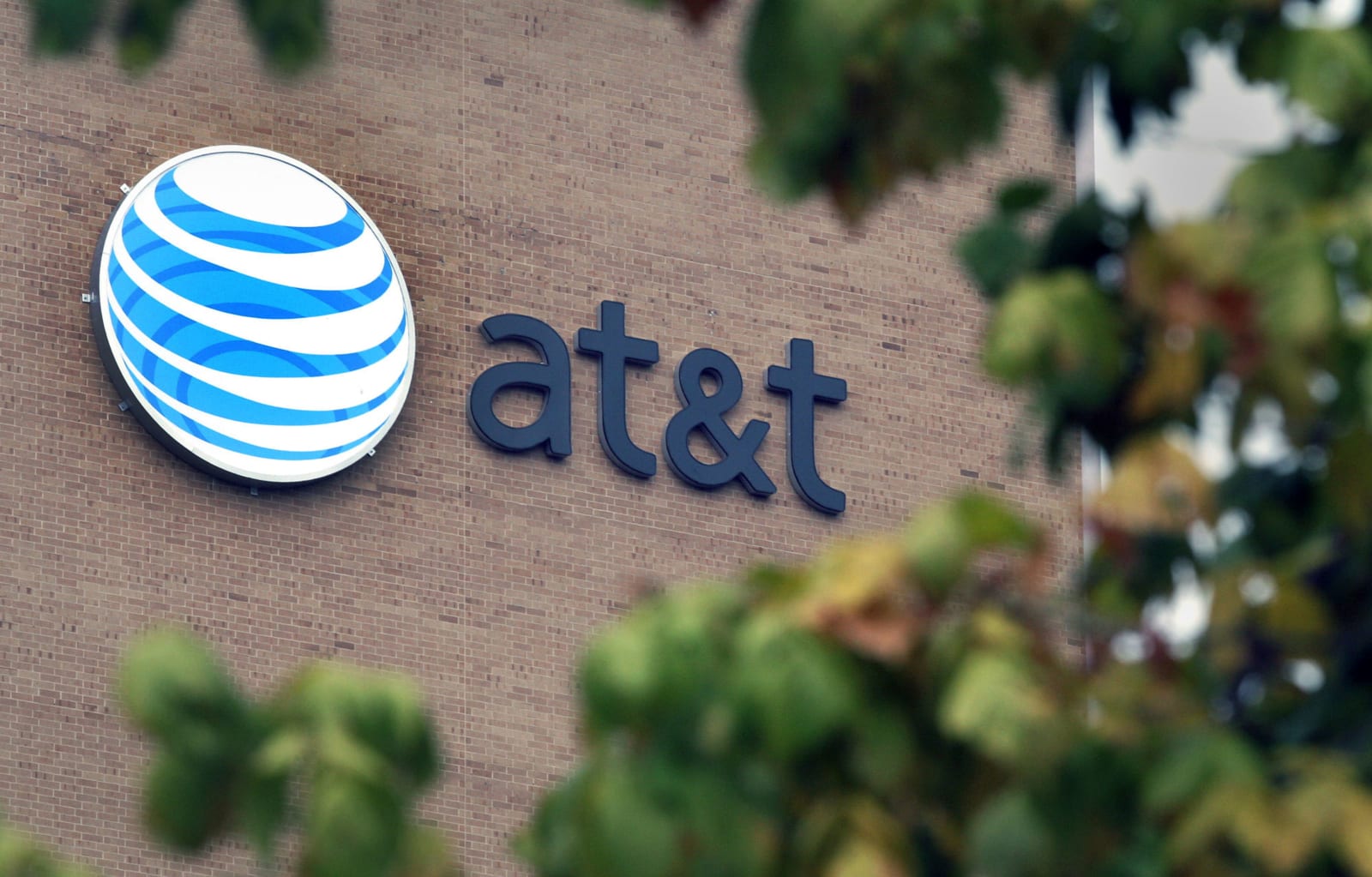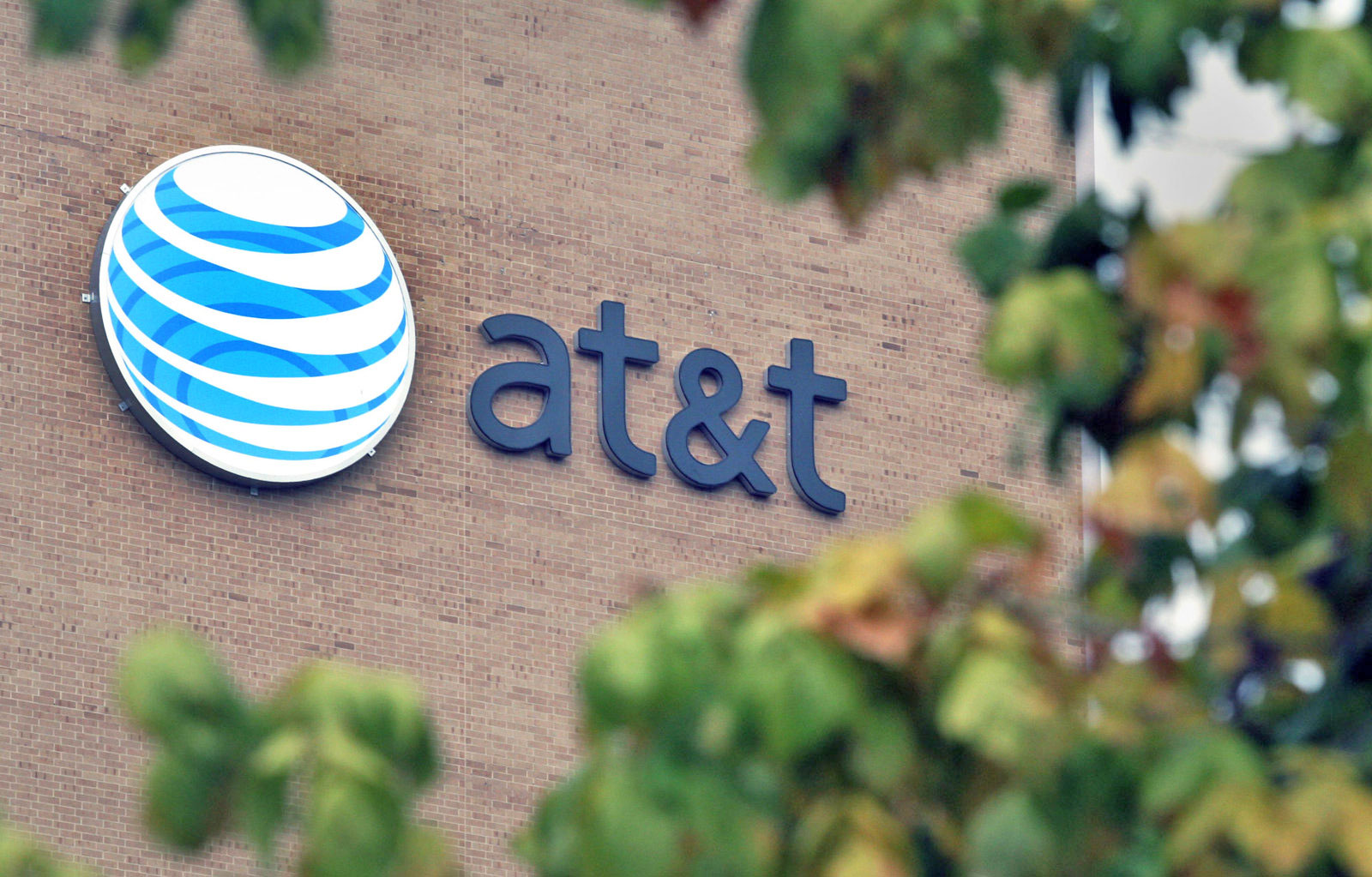Tag Archives: RuralBroadband
AT&T is rapidly expanding its rural wireless internet service
 AT&T wasn't kidding when it said it would expand its rural wireless internet service in short order. The carrier has launched its fixed-in-place cellular access in eight more southeastern states, providing broadband to over 70,000 locations that...
AT&T wasn't kidding when it said it would expand its rural wireless internet service in short order. The carrier has launched its fixed-in-place cellular access in eight more southeastern states, providing broadband to over 70,000 locations that...
AT&T’s rural internet push starts with Georgia
 AT&T is making good on an FCC Connect America Fund promise to bring reasonably fast internet to rural dwellers and those who'd otherwise have to settle for pokey service. The carrier has completed its first batch of fixed wireless internet rollou...
AT&T is making good on an FCC Connect America Fund promise to bring reasonably fast internet to rural dwellers and those who'd otherwise have to settle for pokey service. The carrier has completed its first batch of fixed wireless internet rollou...
Connecting Cape Town: Inside South Africa’s TV white spaces experiment
In 2011, a United Nations commission came to a powerful conclusion: access to broadband internet is a basic human right, matched by the likes of housing, sustenance and healthcare. Arguments can be made that widespread access has transformed entire economies while kick-starting others, with Finland even going so far as to command its ISPs to provide 1 Mbps connections to all homes regardless of location. Both the United States and the United Kingdom have similarly ambitious plans, and all three of these countries have one particular catalyst in common: funds.
The harsh reality, however, is the economies that stand to gain the most from sweeping internet adoption are also the least equipped to enable it. In early 2010, the European Bank estimated that a project to roll out passive optical fiber to 33 cities in the Netherlands would cost nearly €290 million. The mission driving such funding? "To stimulate innovation and keep Europe at the forefront of internet usage." It's the answer to a problem that could undoubtedly be categorized as "first world," but consider this: Internet World Stats found that 92.9 percent of The Netherlands' population routinely used the world wide web in 2012. Let's just say it's easier to invest in an initiative that you're certain nearly 9 in 10 citizens will use.
In the whole of Africa, just 15.6 percent of residents are connected to the internet, which is under half of the world average. It's also home to vast, inhospitable landscapes that are economically inviable to crisscross with fiber. All of that being said, nearly a sixth of the globe's population resides on the continent, representing a monumental opportunity for something -- anything -- to connect the next billion people. As it turns out, there are actions presently ongoing to make a significant mark in the course of history. Google, Microsoft, Carlson Wireless, Tertiary Education and Research Network of South Africa (TENET) and a host of other powerful entities are collaborating to bring high-speed internet to an underserved continent via TV white spaces -- a low-cost, highly adaptable technology that's poised to explode. For now, Cape Town, South Africa, is acting as a proving ground for what will eventually be a far larger experiment. The core goal is actually quite simple: to beam hope to a disconnected society, with unused bands between TV channels acting as the medium. %Gallery-slideshow67067%
Filed under: Networking, Internet, Mobile, Google
FCC loosens outdoor power restrictions on 60GHz spectrum
In response to industry petitioners, the FCC is easing outdoor power restrictions on the unlicensed 60GHz spectrum, which could bring faster broadband to rural areas and cost-effective backhaul solutions in urban settings. This ruling change would permit outdoor devices to deliver high-speed data over greater distances -- around a mile at 7 Gbps, all told -- and "enhance" the unlicensed utility of the 57-64GHz spectrum. While this is the same frequency WiGig uses, indoor power restrictions haven't changed any. Because this spectrum is unlicensed, it means that basically anyone can use it as long as they follow the FCC's rules; no funny business, please.
[Image credit: Rennett Stowe / Flickr]
Filed under: Household, Networking
Via: Ars Technica
Source: FCC
UK watchdog warns of rural broadband delay, blames BT monopoly

Despite receiving hundreds of millions of pounds in government subsidies, the effort to bring high-speed internet to rural parts of the UK seems to be running seriously behind schedule. The National Audit Office (NAO) says the original goal of providing 90 percent of Brits with access to at least a 25Mbps connection by May 2015 will likely be pushed back to the end of 2016 -- and at a cost that's £207 million ($312 million) more than first anticipated. A big part of the problem, according to the NAO, is a lack of competition among those bidding to help with the project. BT has already been awarded more than half of the local contracts and no other company is in the running to scoop up what's left. As well as slowing things down, this effective monopoly may also be adding to the financial pain; whereas before the government expected BT to foot 36 percent of the bill, that's now dropped to just 23 percent. Microsoft's whitespace idea could avoid all these issues, but in terms of schedules it seems just as remote.
Source: The Telegraph
FCC approves Google’s white space wireless database
Google may have been on pins and needles while the FCC scrutinized its white space wireless database over the spring, but it can relax this summer -- the FCC has given the database the all-clear. The approval lets Google serve as one of ten go-to sources for white space devices needing safe frequencies in the US. It also lets those with interference-prone devices, such as wireless microphone users, register the airwaves they consider off-limits to white space technology. The clearance won't have much immediate effect when very few Americans are using the spectrum, but it's a step forward for rural broadband rollouts and other situations where long-range, unlicensed wireless comes in handy.
Filed under: Wireless, Networking, Google
Via: SlashGear
TV white spaces forum paves the way for wireless broadband across Africa
I've traveled to remote islands in the South Pacific where wireless internet is proving to be the go-to technology for broadband, and increasingly, it's looking as if tether-less connections will be what brings millions upon millions of Africans online. Google's own Eric Schmidt has confessed as recently as March that the most exciting part of the web's future isn't any one technology or product, but the "next five billion people looking to get connected." So, it figures that Google was a major constituent at the recent TV White Spaces & Dynamic Spectrum Africa Forum in Dakar, Senegal. It -- along with 15 African nations, Microsoft, the Association for Progressive Communications, Afrinic and others -- recently convened in order to discuss the opportunities that are currently facing the continent. Indeed, the fact that there is over 90MHz available in Dakar alone to be used for wireless broadband deployment puts Africa in a unique spot -- one of the most disconnected regions of our planet could become a pioneer in bringing the next wave of humans online.
ICASA, the South African regulator, will reportedly use various trial outcomes to evaluate possible rules for use of the TV white spaces. And, as Steve Song of Village Telco points out, it's pretty astounding to have Microsoft and Google working in some fashion towards a similar goal. As it stands, a lot has to happen -- final standards have to be agreed upon, equipment makers have to decide that it's a profitable enterprise, and individual nations have to place a high priority on getting their populations connected. That said, the amount of momentum that's already happening is supremely compelling, and I'm hoping to report back in the coming months on how a smattering of these very trials are impacting communities across Africa right now. Stay tuned!
UK regulator wants white space wireless service in 2014, starts trials this fall
While there have been white space test runs in the UK, these were private trials that weren't going to get the ball rolling without government help. Thankfully, local regulator Ofcom is of a like mind. It now plans a trial for data on the in-between frequencies this fall, with full-fledged service going live as soon as 2014. The agency expects to settle on the final locations for the pilot after it chooses partners. No, Ofcom can't guarantee that all the stars will align for rural broadband or other long-range wireless projects -- but its involvement at least means those stars are within reach.
Filed under: Wireless, Networking
Via: GigaOM
Source: Ofcom
Broadband internet arrives in California’s Gold Country through white spaces deployment
While select outfits race to make satellite broadband an acceptable solution for those who need ping times south of three digits, there's another game in town looking to quietly revolutionize rural access. As LTE slowly rolls out to major metropolitan areas in the United States, vacated spectrum is allowing companies like Carlson Wireless to offer up another option. TV white spaces -- unused TV channels freed up after the analog-to-digital transition of 2009 -- have long since been eyed as the answer for distributing high-speed internet to areas that aren't economical to reach via wireline, or are otherwise shunned by conventional wireless operators.
Armed with an FCC-granted Special Temporary Authority to validate the efficacy of the product in real-world scenarios, Carlson has partnered with Cal.net in order to bring internet to sections of California's Gold Country; the project comprises multiple transmission sites delivering broadband to several hundred heretofore un-serviceable subscribers in El Dorado County. There's no word on pricing, but we're sure hoping it's a runaway hit -- we can think of plenty of gorgeous locales in this country that could stand a pinch of internet. (Yellowstone National Park, we're looking at you.)
Filed under: Networking, Internet
Source: Carlson Wireless, Cal.net





